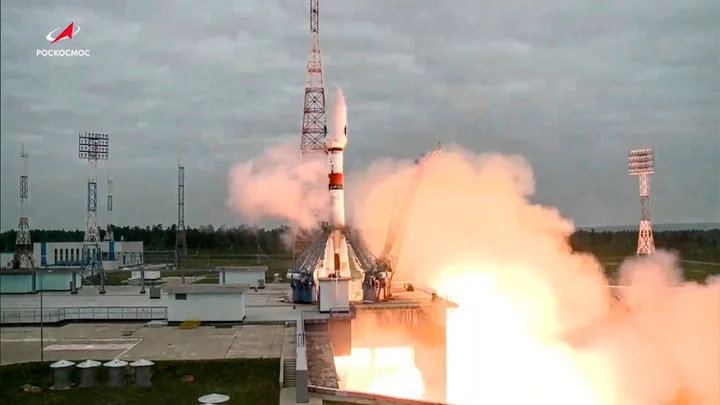
Luna-25 crash: Russian scientist who worked on Putin’s failed moon mission rushed to hospital
A leading physicist and astronomer who served as a key consultant in Vladimir Putin’s moon mission was hospitalised in Moscow after Russia’s first lunar expedition in 47 years failed. Mikhail Marov, 90, was rushed to hospital following a “sharp deterioration” in his health after Luna-25 spacecraft spun out of control and crashed into the moon. "It is so sad that it was not possible to land the apparatus," he said after the failure of Luna-25 was announced. Russia’s state space corporation Roskosmos said it lost contact with the craft at 11.57am (GMT) on Saturday after a problem as the craft was shunted into pre-landing orbit. A soft landing had been planned for Monday. "The apparatus moved into an unpredictable orbit and ceased to exist as a result of a collision with the surface of the Moon," Roskosmos said in a statement. It said a special inter-departmental commission had been formed to investigate the reasons behind the loss of the Luna-25 craft, whose mission had raised hopes in Moscow that Russia was returning to the big power moon race. Mr Marov told the Moskovsky Komsomolets newspaper that he hoped the reasons behind the crash would be discussed and examined rigorously. "This was perhaps the last hope for me to see a revival of our lunar programme," he said, according to Reuters. “There was a mistake in the algorithms for launching into near-lunar orbit,’ he was quoted as saying by the Daily Mail. “It must be found.” “For the specialists who will be involved in the work of the commission, this will not be a big problem. I think the answer will be found in the foreseeable future.” Sharing details on his medical condition, he told the outlet that he is currently “under observation” as he shared his exasperation over the failure of the mission. “How can I not worry? This has been very much a matter of my life. It’s all very hard.” The failure of Luna-25 underscored the decline of Russia’s space power since the glory days of Cold War competition when Moscow was the first to launch a satellite to orbit the Earth – Sputnik 1, in 1957 – and Soviet cosmonaut Yuri Gagarin became the first man to travel into space in 1961. It also comes as Russia’s $2 trillion economy faces its biggest external challenge for decades: the pressure of both Western sanctions and fighting the biggest land war in Europe since World War Two. Though moon missions are fiendishly difficult, and many US and Soviet attempts have failed, Russia had not attempted a moon mission since Luna-24 in 1976, when Communist leader Leonid Brezhnev ruled the Kremlin. Russia has been racing against India, whose Chandrayaan-3 spacecraft is scheduled to land on the moon’s south pole this week, and more broadly against China and the United States which both have advanced lunar ambitions. Russian officials had hoped that the Luna-25 mission would show Russia can compete with the superpowers in space despite its post-Soviet decline and the vast cost of the Ukraine war. Additional reporting by agencies Read More Russia’s Luna-25 spacecraft crashes into moon in failed mission The Russian space agency says its Luna-25 spacecraft has crashed into the moon. Russia's Luna-25 spacecraft suffers technical glitch in pre-landing maneuver The Body in the Woods | An Independent TV Original Documentary The harrowing discovery at centre of The Independent’s new documentary
2023-08-21 20:57
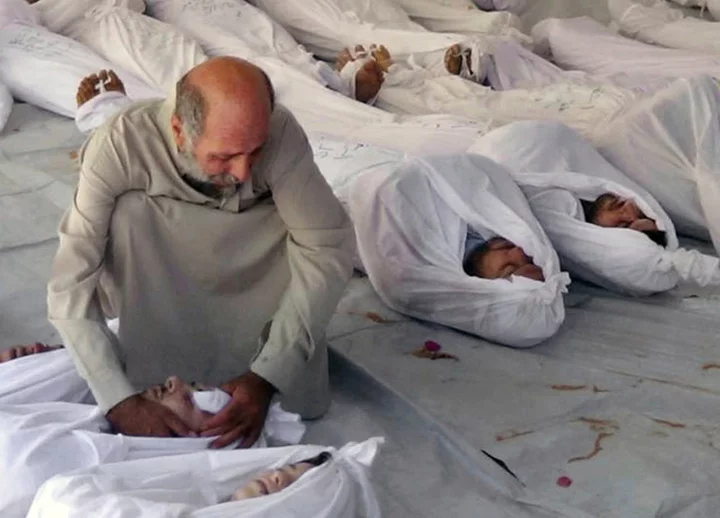
A decade after a sarin gas attack in a Damascus suburb, Syrian survivors lose hope for justice
One summer night a decade ago, the al-Shami family was woken up by a roaring sound or rockets but it wasn't followed by the usual explosions. Instead, the family members started having difficulty breathing. Ghiad al-Shami, 26, remembers how everyone tried to run to the rooftop of their apartment building in eastern Ghouta, a Damascus suburb that at the time was held by opposition fighters trying to topple Syrian President Bashar Assad. Al-Shami's mother, three sisters and two brothers died that night — victims of the Aug. 21, 2013 sarin gas attack that killed hundreds and left thousands of others hurt. Ten years on, al-Shami and other survivors say there has been no accountability for the attack and for the other atrocities committed in Syria during the country's brutal civil war, now in its 13th year. Over the past year, Assad's government — accused by the United Nations of repeated chemical weapons attacks on Syrian civilians — has been able to break out of its political isolation. Assad was welcomed back to the Arab League, which had suspended Syria’s membership in 2011 following a crackdown on anti-government protests. With the help of top allies Russia and Iran, Assad also recaptured large swaths of territory he initially lost to opposition groups. “Today, instead of holding perpetrators accountable, Assad is being welcomed back into the Arab League and invited to international conferences, cementing impunity for the most heinous of crimes,” said Laila Kiki, executive director of The Syria Campaign advocacy group. “To all those who seek to shake hands with Assad, this anniversary should serve as a clear reminder of the atrocities his regime has committed,” she said in a statement. In 2013, Assad was widely held responsible for the eastern Ghouta attack — weapons specialists said the rocket systems involved were in the Syrian army’s arsenal. The Syrian government has denied ever using chemical weapons. Russia, Syria’s prime ally, claims the Ghouta attack was carried out by opposition forces trying to push for foreign military intervention. The United States threatened military retaliation in the aftermath of the attack, with then-President Barack Obama saying Assad’s use of chemical weapons would be Washington’s “red line.” However, the U.S. public and Congress were wary of a new war, as invasions in Afghanistan and Iraq had turned into quagmires. In the end, Washington settled for a deal with Moscow for Assad to give up his chemical weapons' stockpile. Syria says it eliminated its chemical arsenal under the 2013 agreement. It also joined a global chemical weapons watchdog based in The Hague, Netherlands, as global pressure mounted on Damascus. The Organization for the Prohibition of Chemical Weapons has blamed the Syrian government for several deadly chemical attacks, most recently for a 2018 chlorine gas attack over Douma, another Damascus suburb, that killed 43 people. Syrian authorities refused to allow investigation teams access to the site of the attack, and had their voting rights within the OPCW suspended in 2021 as punishment for the repeated use of toxic gas. Damascus has accused the watchdog of bias in favor of the West and has not recognized its authority. Western countries say that Syria has not fully declared its chemical weapons stockpile to the OPCW to be destroyed. The Syrian government and its allies reclaimed eastern Ghouta in 2018, with most of its residents fleeing to the last rebel-held enclave in Syria's northwest. Abdel Rahman Sabhia, a nurse and former resident of the suburb, has since moved to the town of Afrin in the northern Aleppo province, now under Turkish-backed groups. “We lost hope in the international community,” said Sabhia, who worked at a voluntary field hospital in Ghouta at the time of the gas attack. “Why should we trust in them if we still haven’t seen any accountability for all the children who lost their families?” Sabhia says he had gotten used to airstrikes and shelling, but the aftermath of the 2013 attack was different. The streets were eerily quiet, “like a ghost town,” he recalled. “We broke into a house and saw a baby, just months old, lying dead in bed with his parents." At the time, dozens of bodies were laid out in hospitals with families looking to identify their loved ones. Some families were buried together in large graves. Al-Shami, who now lives in Istanbul recalls regaining consciousness a day after the attack. “I felt helpless,” he said. ___ Chehayeb reported from Beirut. Read More Ukraine war’s heaviest fight rages in east - follow live Charity boss speaks out over ‘traumatic’ encounter with royal aide Protests rock government-held areas in southern Syria as economy crumbles Iran's foreign minister visits Saudi Arabia's powerful crown prince as tensions between rivals ease Syrian president doubles public sector wages as national currency spirals downwards
2023-08-21 20:54
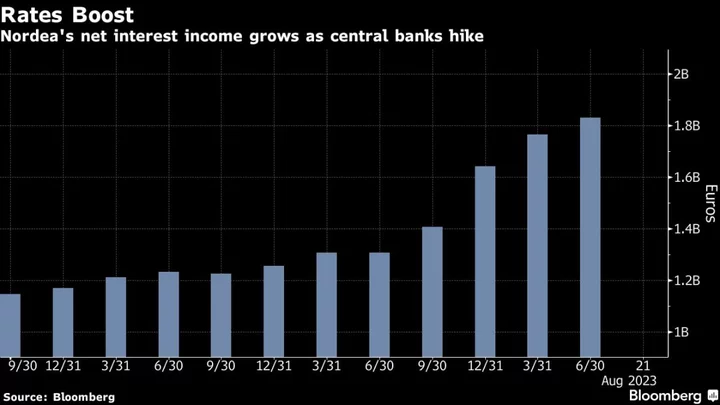
Nordea Boosts Interest on Finnish Retail Clients’ Deposits
Nordea Bank Abp, the largest bank in the Nordic region, is raising deposit rates on accounts held by
2023-08-21 18:51
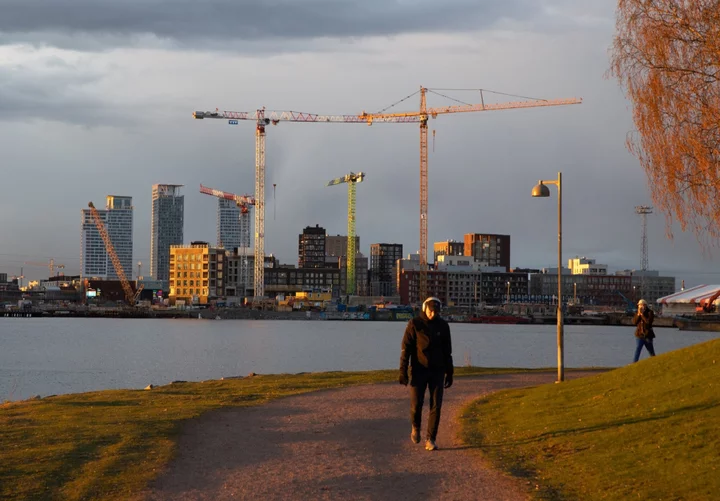
Finnish Bankruptcies Hit 26-Year High With Builders the Most Hurt
The number of companies filing for bankruptcy in Finland rose to the highest in 26 years last month
2023-08-21 18:21
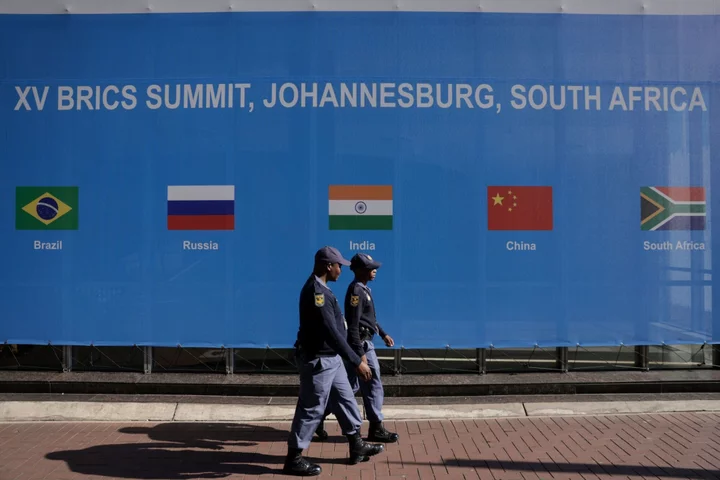
BRICS Expansion Gets Interesting If Saudis Join, Jim O’Neill Says
Adding countries to the BRICS bloc will matter economically if Saudi Arabia is one of them but otherwise
2023-08-21 18:16
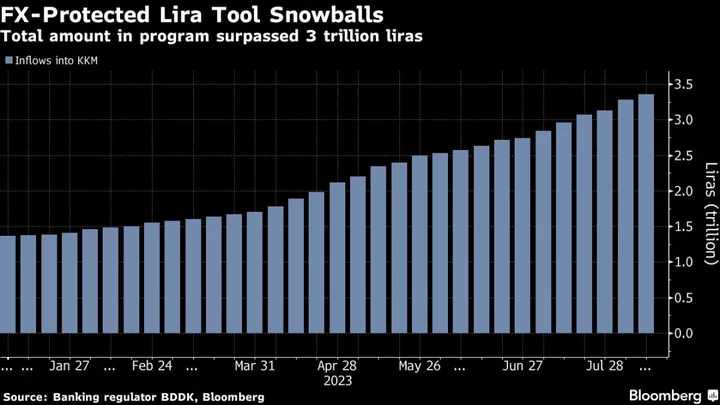
Lira Lifesaver Became $124 Billion Gamble That Haunts Turkey
As the lira was approaching a decade of continuous losses, Turkish policymakers hit on an idea that promised
2023-08-21 17:57
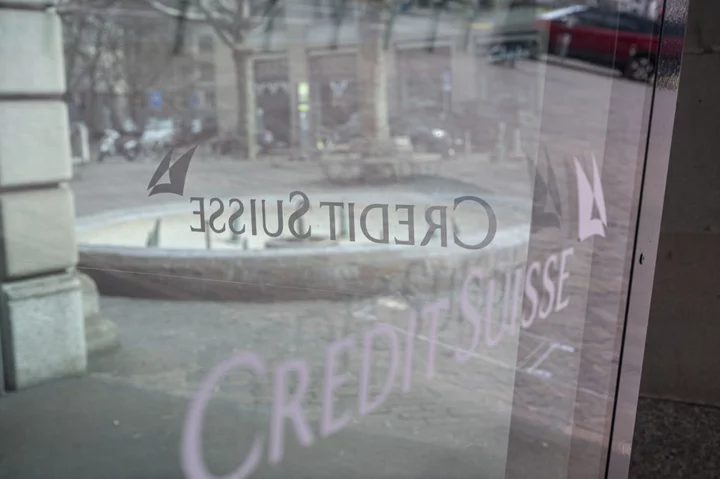
Credit Suisse Shuts Japan Equity Trading for Hedge Funds
Credit Suisse is shutting its cash equity sales business in Japan, and has told hedge funds and other
2023-08-21 17:25
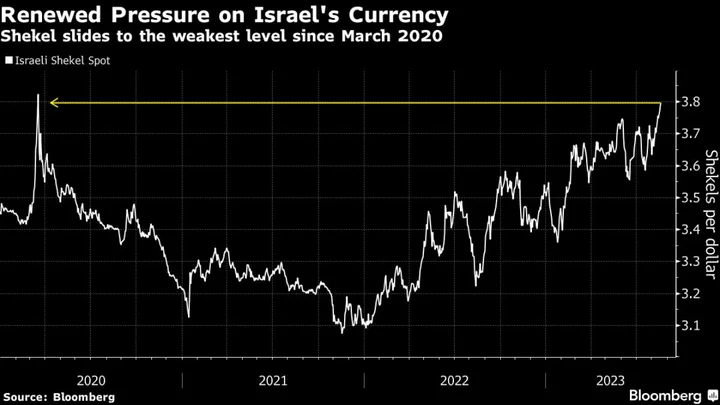
Fitch Makes Case for Why Netanyahu Won’t Doom Israel Economy
When Fitch Ratings issued an optimistic report on Israel last week, it defied growing conventional wisdom that the
2023-08-21 16:15
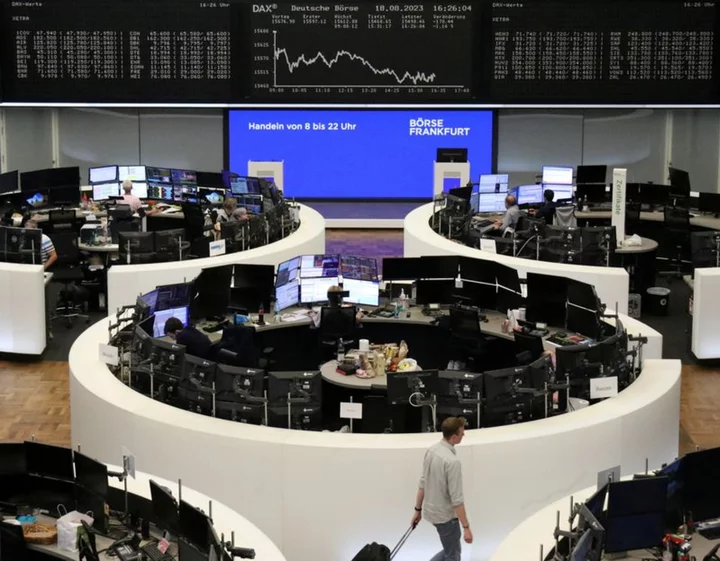
European shares rise on energy, healthcare boost
European shares advanced on Monday after energy stocks tracked global crude prices higher and as a strong performance
2023-08-21 15:53

Ukraine-Russia war – live: Kyiv to receive dozens of F-16 fighter jets as Moscow drone attack disrupts flights
The Netherlands and Denmark will supply dozens of F-16s to Ukraine as they pledged “unwavering support” in a landmark announcement yesterday. While Volodymyr Zelensky said his country would receive 42 jets in total, the two donor countries did not specify numbers in a joint statement confirming the deliveries. Denmark’s prime minister Mette Frederiksen said 19 jets will “hopefully” be sent to Kyiv, of which six will arrive around the new year, eight more next year and the remaining five will be sent in 2025 as he asked Ukraine to “please take this donation as a token of Denmark’s unwavering support for your country’s fight for freedom”. Dutch prime minister Mark Rutte said the Netherlands has 42 of the jets, but said some will be needed for training purposes. Ukraine has been asking its allies for advanced fighter jets since the very beginning of Russia’s invasion, but its Western allies have been reluctant to provide military donations that could be used to strike deep inside Moscow’s territory. It comes as nearly 50 flights to and from Moscow were disrupted after Russia said it foiled attacks by two Ukrainian drones in the city. Read More ‘Wagner is victim of its own brand name’: How much of a threat does mercenary group pose in Belarus? Zelenskyy visits NATO candidate Sweden for 1st time since full-scale war with Russia Ukraine war troop deaths and wounded nearing 500,000, say US officials
2023-08-21 15:52

Finnair Losing CEO to Elisa Adds to Challenges for Flag Carrier
Finnair Oyj is starting the search for a new leader after Chief Executive Officer Topi Manner announced his
2023-08-21 15:21
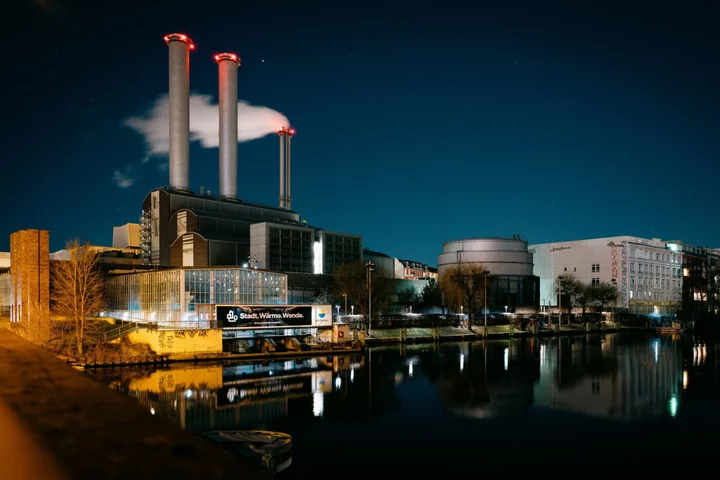
European Gas Prices Soar on Australia LNG Workers’ Ultimatum
European natural gas prices jumped as workers serving a key export project in Australia prepare for a strike
2023-08-21 14:16
